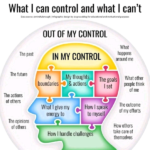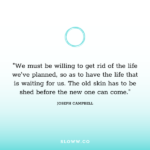
Drop the Load
by Rick Hanson
Why?
You may have seen the old Mickey Mouse movie in which he is working at a conveyor belt in a factory. More and more widgets come at him that he has to handle, and he gets increasingly frazzled as he struggles to keep up.
Do you ever feel the same way? Think about all the dishes, emails, meetings, reports, drives, calls returned, laundry folded, children tucked into bed, friends comforted, errands run, etc. etc. Most of a person’s tasks, even all of them, could be individually rewarding and done for a good purpose, but taken as a whole they’re often too much. It’s certainly gotten this way for me.
Doing crowds out being, the urgent crowds out the important, and you go to bed after working hard all day feeling frustrated and maybe self-critical that you didn’t get more done. (…) At the heart of it all there’s an unfreedom: you can feel chained to obligatory tasks.
What to do?
Take on Fewer Tasks
Of course, it’s good to make an effort, to hold up your end of the log. You honor your previous commitments. And sometimes new things come your way – some wonderful, some not – that do require a lot of work. (,,,)
But when you can – and this has become very important for me lately – be careful about adding new, discretionary items into the commitments hopper. Give yourself time to think. Be really really clear about all the little things that will come with this additional obligation, including new things you’ll have to think about or take time doing. Are the rewards of the new commitment really worth these costs?
(…)
Put a Fence Around Doing
As a young man I worked briefly in a factory loading cases of soft drinks onto pallets for trucks. It was hard physical labor, but at the end of the shift when we clocked out it was definitively over – what a relief. Similarly, set a time each day when you are truly done: no more emails, no more housework, no more projects. You made an effort today, you did what you could, and now you’re clocked out.
A related way to approach this is in terms of the saying, “first put the big rocks in your bucket.” In other words, make time commitments to what you value more that will push what you value less to the margins. (…) Imagine looking back on your life: will you care that you got all those to-do’s done or care that you did the things that mattered most to you?
Shift Your Relationship to Tasks
Getting stuff done sometimes seems like the secular religion of the developed world, especially in America, where we routinely make sacrifices at the altar of doingness.
(… Instead,) watch your mind and its sense of “must” when it comes to tasks. Keep returning to the feeling that you are choosing to do the task, not driven to it.
(…)
Vicki P here…
Along these same lines, Nik Goke recently wrote an essay entitled “Slow Down to Speed Up”… where a busy piano tuner decided to slow down on a particular day as he wasn’t able to take his expected time off. Much to his surprise, his decision to deliberately slow down and pay attention to his process not only allowed him to be more relaxed, it cut 40% off of the time he normally spent to complete the job. Bottom line, the piano tuner was working more slowly and doing it right—the first time around.
This is something I am consciously experimenting with as my typical rush-to-finish mentality isn’t cutting it; but doing something slowly and well likely will.
I am also keen on Hanson’s daily triage idea.
We can’t extend the hours in a day so it’s only prudent for all of us to put the big rocks into our daily bucket first. If we get to the gravel, we get to the gravel. If not, get a grip… it’s gravel!






























